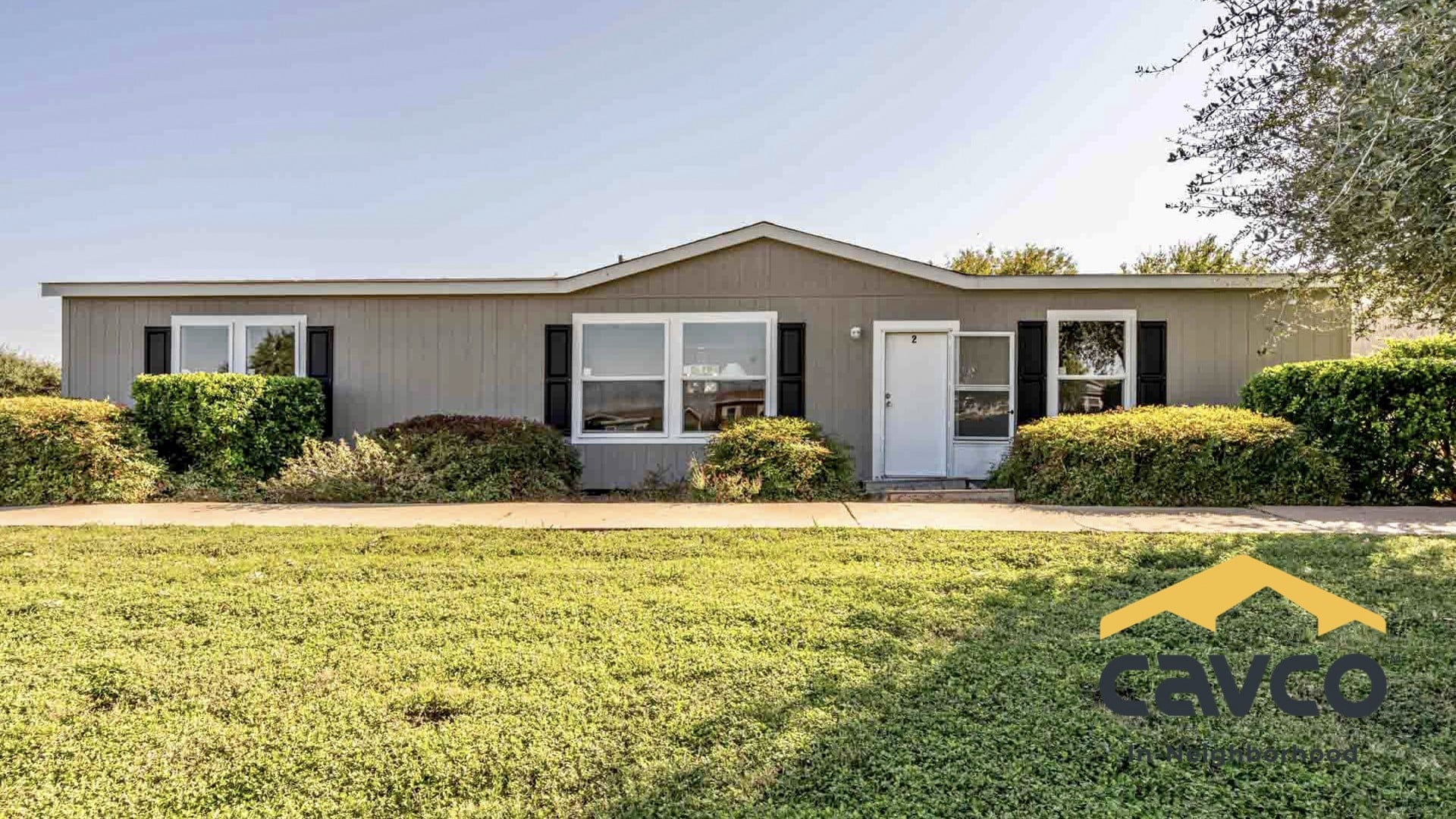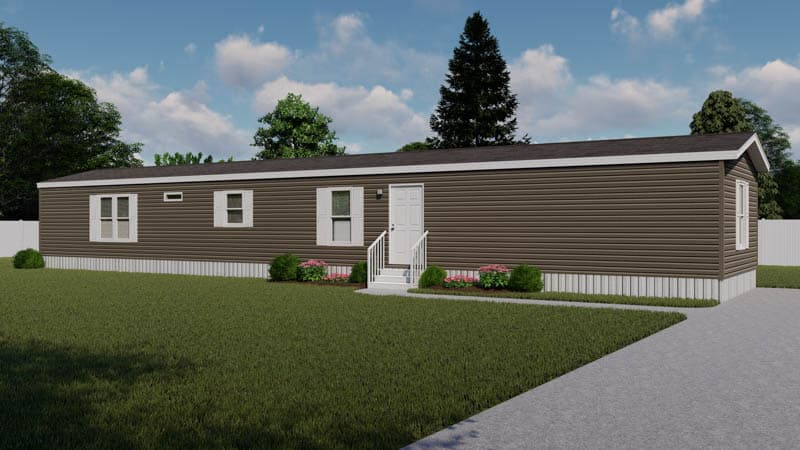
With the manufactured home market consistently growing in popularity and size, there are more and more opportunities to buy your own home or rent one. Often both options are available in manufactured home communities with added amenities, too.
And while buying a manufactured home can be a more affordable entry to ownership, there are still many important factors to consider when deciding between home ownership vs renting, from the costs all the way down to lifestyle flexibility and your preferences.
To help you outline your pros and cons, here are a few of the most important items to think about before making your decision.
Costs of Buying vs. Renting a Manufactured Home
When deciding to buy or rent a manufactured home, it’s important to evaluate the costs involved, including initial expenses, ongoing payments, and the potential long-term financial impacts.
Upfront Expenses
Purchasing a manufactured home involves higher initial costs compared to renting. Homebuyers typically need to make a down payment, which varies based on the home’s price and the buyer's credit score.
Renting a manufactured home usually requires a security deposit and the first month's rent, which are often lower than the total down payment needed to buy a home. This typically makes renting more accessible for those who may not have substantial savings built up.
Monthly Commitments
When you buy a manufactured home, your monthly payments will likely include a mortgage, property taxes, insurance, and possibly a land lease if the home is located in a community. These expenses can add up, but a fixed-rate mortgage provides predictability, helping you manage your budget over time.
Renting a manufactured home, on the other hand, usually involves a single rental payment each month. Depending on the rental agreement, this payment may cover the home and the lot it sits on. And renters don’t have to worry about property taxes or home insurance, which simplifies financial obligations. However, rental rates can increase based on a variety of factors, especially when lease agreements are renewed.
Long-Term Outcomes
One of the key benefits of buying a manufactured home is the opportunity to build equity over time. The investment value of these homes can be influenced by factors such as location, upkeep, and market conditions. While some manufactured homes appreciate over time, they generally don't increase in value as quickly as traditional homes. But purchasing allows you to build some equity, turning your mortgage payments into an investment.
By contrast, renting a manufactured home does not build equity. Monthly rental payments cover the cost of living but don't contribute to ownership. While renting offers flexibility, it doesn't provide the same potential for financial growth that homeownership can.
Ownership Responsibilities vs. Renting
Owning a manufactured home comes with the responsibility of maintaining and repairing the property. This includes routine tasks like cleaning and yard work, as well as dealing with any unexpected issues such as plumbing repairs or roof maintenance. While this can be time-consuming and costly (often unexpectedly), the right home warranties and insurance can help offset some of those expenses.
Renters of manufactured homes, on the other hand, typically rely on their landlord for maintenance and repairs. This can be a significant advantage for anyone who prefers a maintenance-free lifestyle, as it reduces the time and money you need to invest in the home. However, the quality and timeliness of maintenance may depend on the landlord's responsiveness, so choosing a well-managed community is crucial.
If you like the idea of blending both home ownership and a lifestyle with less maintenance, consider looking into modern communities that offer some relief, support, or assistance.
Flexibility & Restrictions
Whether you buy or rent a manufactured home, there are different levels of flexibility and restrictions to consider.
Customization & Personalization
As a homeowner, you have the freedom to personalize and customize your manufactured home to suit your tastes – as early as the building process. You can make changes to the interior and exterior, remodel rooms, and choose your own decor without needing approval from anyone else. This allows you to create a living space that truly feels like your own.
Renters of manufactured homes usually face restrictions on customization. Landlords often set rules about what changes can be made to the home, both inside and out. While you might be able to decorate, more significant alterations may be prohibited, limiting your ability to fully make the space your own.
Lifestyle Flexibility
Owning a manufactured home provides greater freedom at home. You can make decisions about pets, landscaping, and outdoor activities without needing landlord permission. However, if your home is located in a community with HOA regulations, you’ll need to follow those rules.
But renting offers a different kind of flexibility. If your life situation changes, renting makes it easier to move. Lease agreements often span a year, allowing you to relocate with less hassle than selling a home. This can be particularly appealing if you're unsure about staying in one place long-term.
Owning vs. Renting in a Community
Both owning and renting a manufactured home within a community can offer a sense of belonging with access to neighborhood amenities like pools, fitness centers, and social spaces. Whether you own or rent, this community atmosphere can enhance your living experience.
However, homeowners often take more pride in their property and may be more invested in the community. Renters, while still able to enjoy the community, might not have the same level of commitment to maintaining the property or engaging in community activities.
Stability and Security
Owning a manufactured home offers a sense of stability that renting might not. As a homeowner, you have control over your living situation, free from concerns about lease renewals or rent increases. This long-term security can be comforting, especially if you value a sense of permanence.
Renters, on the other hand, may face instability due to potential rent increases or changes in rental policies. If your landlord decides to sell the property or change the terms of your lease, you might have to move unexpectedly. For those who prioritize stability, buying a home may be the better choice.
How to Decide Between Home Ownership vs. Renting
Deciding between manufactured home ownership vs. renting is a big one to make. It can affect – and depend on – your financial situation, lifestyle preferences, and long-term goals. While buying offers the potential for equity and stability, renting provides flexibility and fewer responsibilities.
And by carefully weighing the costs, responsibilities, and lifestyle implications, you can make the decision that best aligns with your needs and aspirations. Whether you choose to buy or rent, both options can offer a comfortable and fulfilling living experience in today's thriving manufactured home communities. And choosing the right community can make all the difference.






